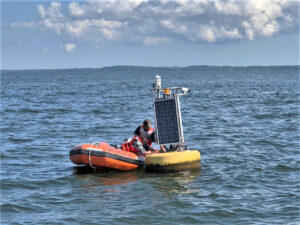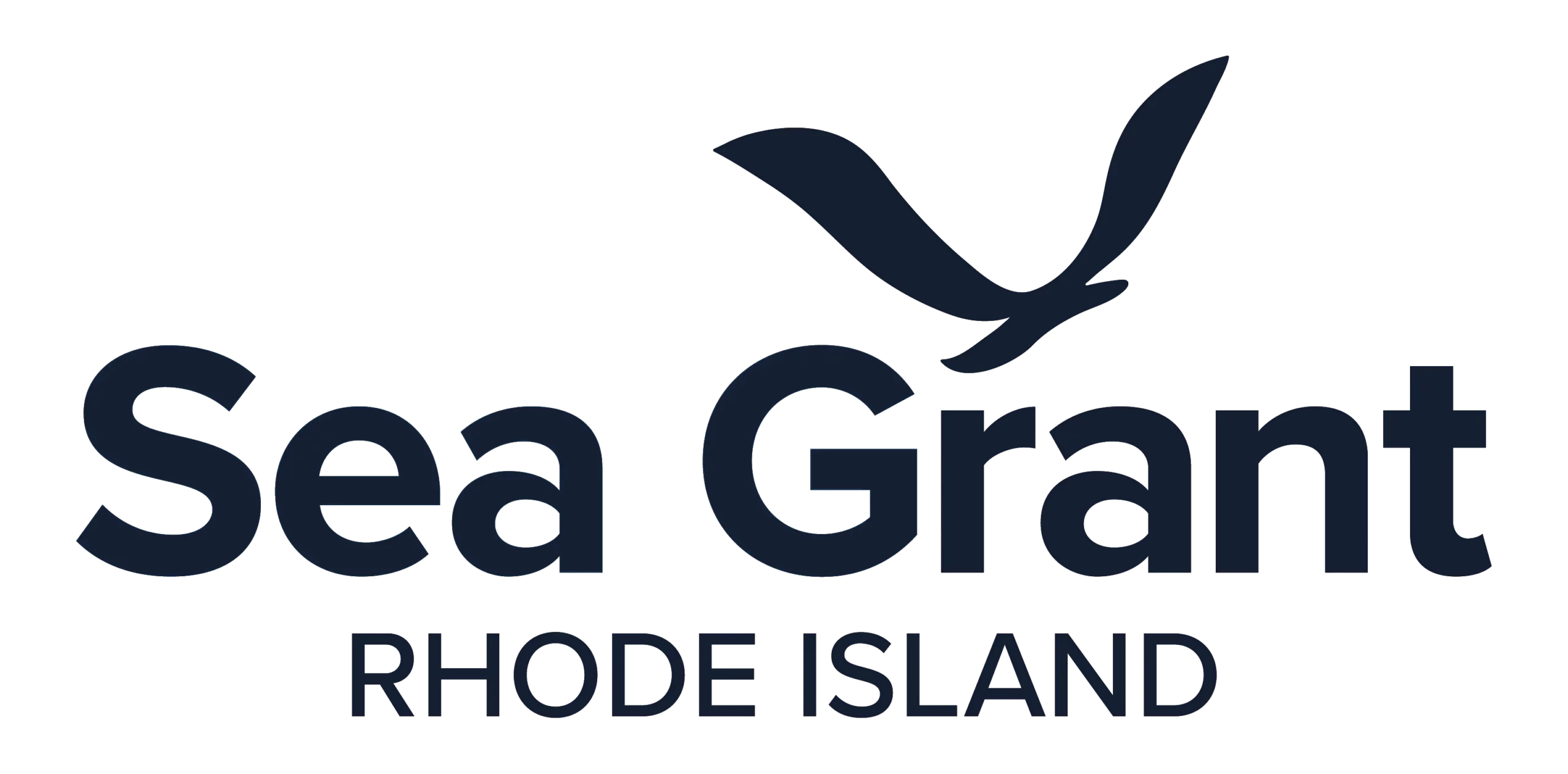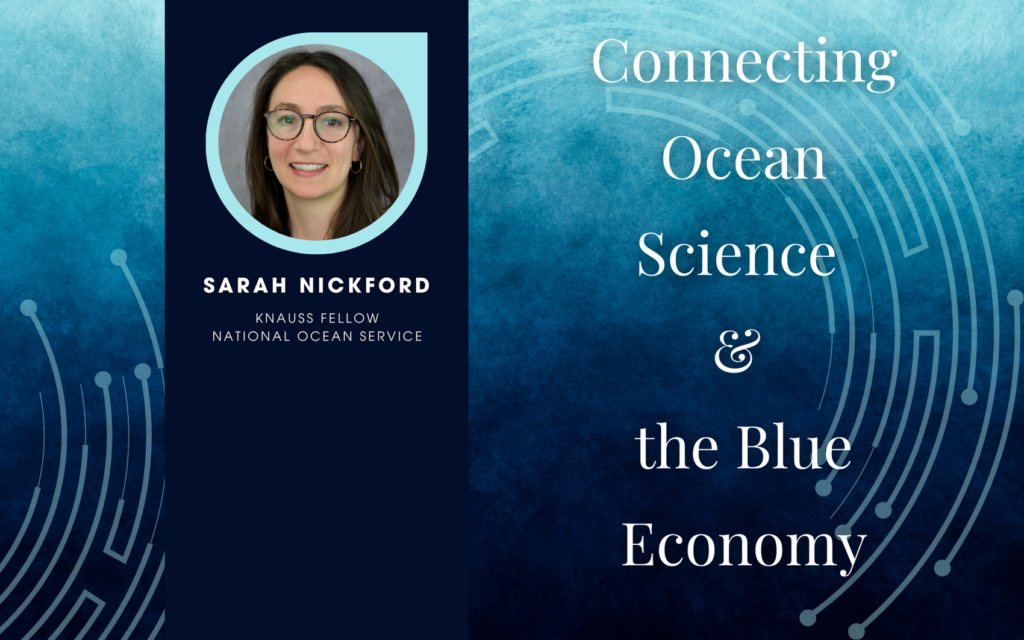Sea Grant Knauss Fellow Sarah Nickford Connects National Ocean Service with the Blue Economy
After years in classrooms and labs, some graduate students realize they want to explore ocean science outside academia. That’s where the National Sea Grant Knauss Marine Policy Fellowship comes in—taking promising graduate students from a variety of backgrounds and placing them in marine policy positions in the federal government. That was the path that in 2024 landed one such University of Rhode Island Graduate School of Oceanography student, Sarah Nickford, with the National Ocean Service (NOS).
Nominated for the fellowship by Rhode Island Sea Grant, Nickford wasn’t new to the National Oceanographic and Atmospheric Administration (NOAA), having interned in its Geophysical Fluid Dynamics Laboratory in 2017. Her doctoral thesis in physical oceanography at URI looked at carbon dioxide and heat exchange in the Gulf Stream, but her work in the U.S. Integrated Ocean Observing Systems office in NOAA’s NOS has taken her out of the lab and into the community, focusing on the blue economy.

Buoys like this one in Lake Michigan’s Green Bay are part of a national network of ocean observing systems. (Photo courtesy of NOAA NOS by Dr. Laodong Guo)
Nickford has participated in several big projects this year, attending scientific conferences, engaging with attendees, giving presentations, and soliciting feedback. One project that she supports is the Ocean Enterprise Study, a survey quantifying the $8 billion impact of businesses that support ocean measurement, observation, and forecasting. She has made connections with various U.S.-based businesses during conferences, gathering contact information so that the Ocean Enterprise Study survey makes it into the right place for successful completion.
She is also assisting with the development of the Benefits of Ocean Observing Catalog, a web-based tool documenting case studies that demonstrate the importance of ocean observations leading to various societal, economic, and environmental benefits. It will serve as a central resource for the ocean observing, measurement, and forecasting community as well as a communication tool for those less familiar with this work. Nickford says this type of tool has been discussed broadly amongst the community and there is general excitement that resources are now available for its development.
Nickford pursued a Knauss Fellowship as an opportunity to learn by doing. She wanted to learn how research can inform policy from the bottom up as well as focus on societally relevant work, and said she feels rejuvenated by her NOAA work after years in academia.
When she finishes her fellowship, Nickford hopes to work in place-based science that directly impacts the coastal community closest to the research, blending her interests in oceanography and community engagement. She recommends the Knauss Fellowship to other graduate students as a great opportunity for career discovery, citing the program’s genuine investment in professional development for fellows and the networking it affords recent grads in the early stages of their careers.
—By Georgia Young, Rhode Island Sea Grant Graduate Communications Fellow
The Knauss Fellowship is a one-year paid opportunity for current and recent graduates from advanced degree programs to apply their scientific knowledge and experiences to current issues in science, policy, and public administration. Students who are enrolled in or have recently completed master’s, Juris Doctor and Doctor of Philosophy programs with a focus and/or interest in marine and coastal science, policy, or management apply to one of the 33 eligible Sea Grant programs.
For more information on the Knauss program, visit https://seagrant.noaa.gov/communities/students/graduate-fellows/knauss-fellowship-program/.

